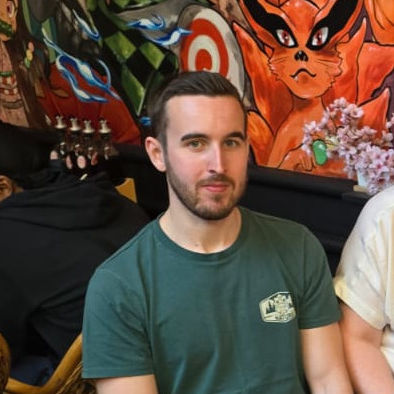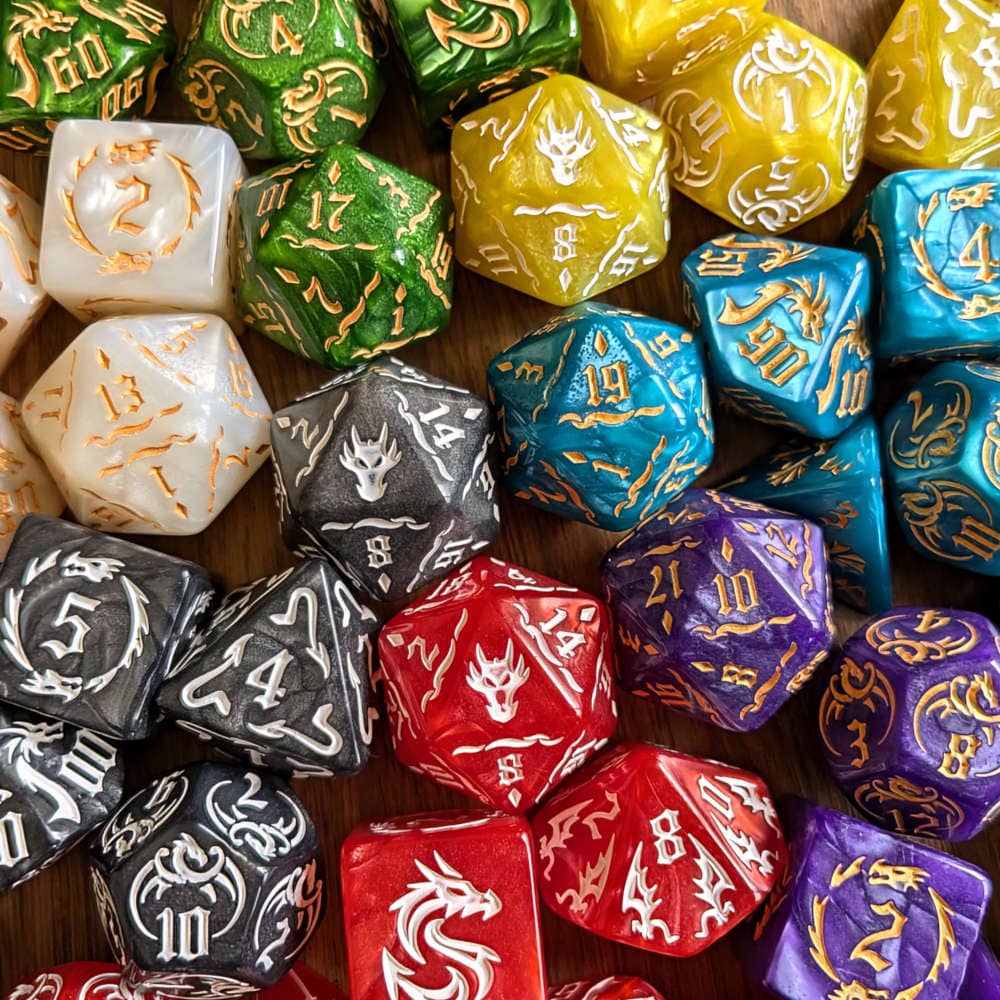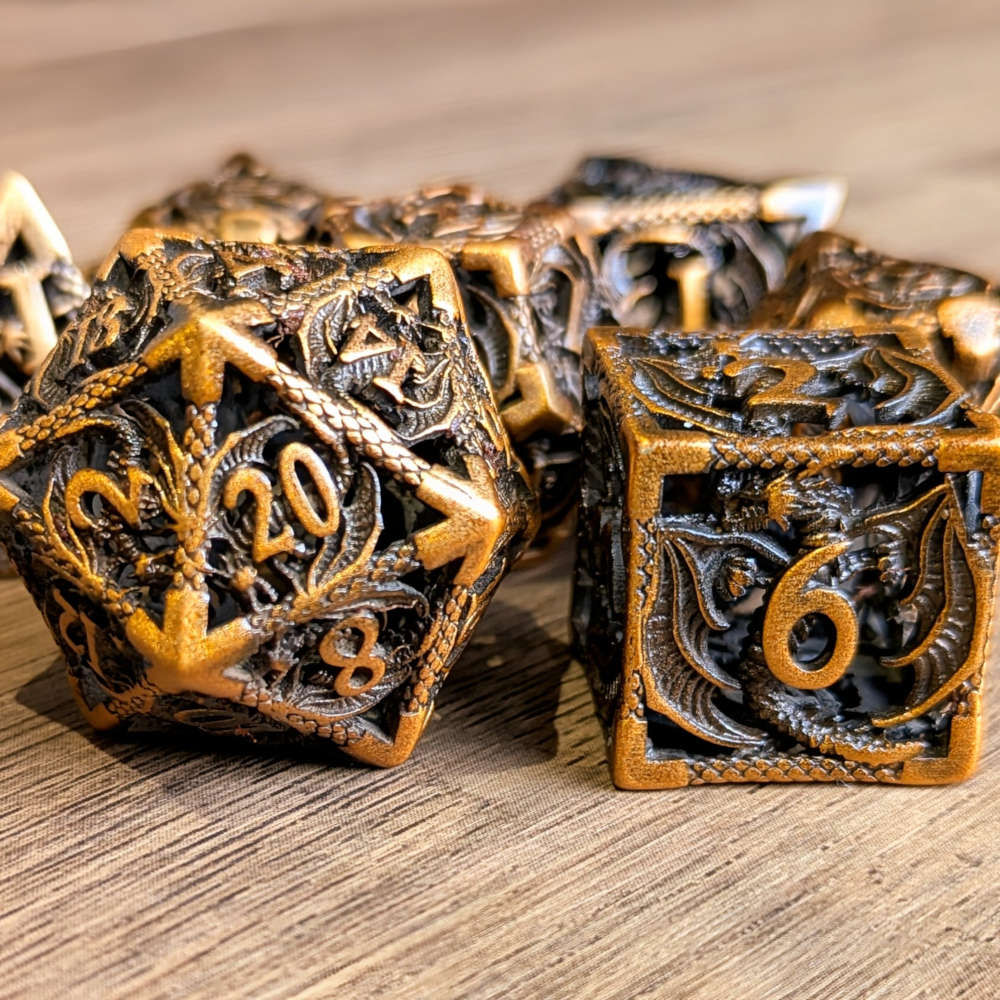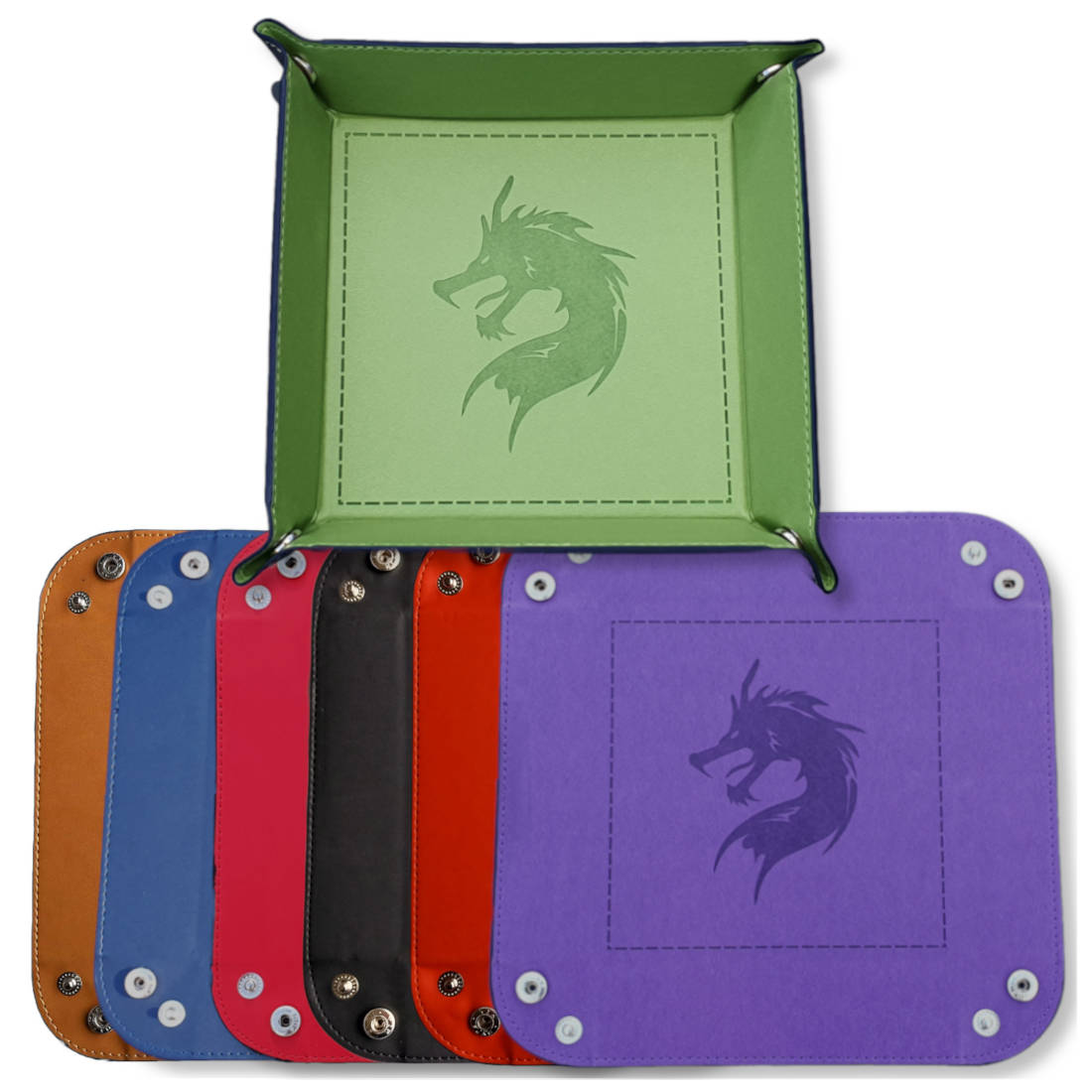Tips for playing D&D with social anxiety

Navigating the vast realms of Dungeons & Dragons (D&D) can be an exhilarating adventure, offering a captivating escape from reality. However, for those with social anxiety, the prospect of immersing yourself in a fantasy world can be both exciting and daunting. The multitude of choices and situations might feel overwhelming, but rest assured, you’re not alone in this journey.
In this guide, we’ll explore some tips that ourselves and other players use to help manage anxiety before, during, and after a game of D&D.
What is anxiety and how does it manifest in D&D?
Social anxiety is a long-term and overwhelming fear of social situations. It’s more than just shyness; it might manifest as overthinking, avoidance, freezing, or panic attacks. This can make it difficult to interact in social situations, especially group settings, so it’s no surprise that you might find the prospect of playing D&D stressful or scary.
Every adventure in D&D is woven with threads of interaction and communication. Engaging with fellow players, interacting with non-player characters (NPCs), and collaborating with the Dungeon Master are all integral components of the tabletop experience. For people with social anxiety, this can be a daunting challenge.
But fear not. DND offers a safe space to practice social skills without fear of judgement or rejection. Fundamentally, tabletop games like D&D are build on cooperation and collaboration, which fosters a sense of camaraderie that can transcend the bounds of social anxiety. As many players may also grapple with social anxiety, observing how others navigate group dynamics can be enlightening.
How to start playing D&D if you have anxiety
Diving into the world of D&D with social anxiety might feel like crossing into uncharted territory but fear not! Everyone is different, and DND can be a fun and welcoming place, including for neurodivergent people looking to play D&D.
While there’s no one-size-fits-all approach, we’ll explore some valuable tips to help you embark on thrilling adventures at your own pace:
- Observe before you participate: if the thought of joining a D&D campaign feels overwhelming, you could watch how the game is played first. Platforms like YouTube, Twitch, and live-play podcasts provide insights into how the game is really played, helping you familiarise yourself before taking the plunge. You could also try playing online, rather than playing in-person, so you have the comfort of your own home. For more, check out our guide that explores the differences between playing D&D in-person and online.
- Read up on the rules: there’s lots of rules and mechanics in D&D, so start slow. DND Beyond is a great resource for learning the rules, so make sure you take the time to learn the basics including how D&D dice work to boost your confidence when you join a group.
- Start in a solo or small group: to ease into the D&D experience, consider playing D&D solo by yourself, or try playing D&D with two players. Playing with a few trusted friends in a low-stakes environment can help you acclimatise to the gameplay.
- Try a one-shot or short adventure: if the idea of a full-fledged campaign feels intimidating, consider playing a one-shot or pre-written adventure. One-shots are adventures that span 1 or 2 sessions and provide a taste of the game’s dynamics without the long-term commitment.
- Consider using a pre-generated character: the character creation process is an important part of a D&D game, but with so many options and things to think about, it can be overwhelming. Try using a pre-generated character; these are official characters that are designed to allow you to jump right into the action without the pressure of character creation.
Remember, the key to navigating D&D with social anxiety is to tailor your approach to your unique preferences and needs. As you embark on your journey, take comfort in the fact that countless adventurers have found solace, camaraderie, and empowerment within the realms of imagination and fantasy.
Tips for managing anxiety while playing D&D
We’ve gathered a treasure trove of tips to aid you in your quest to conquer anxiety while playing DND:
Before the game
- Talk to your group beforehand about your anxiety. Share any triggers or concerns you may have and explore with your group how you can collectively create an environment that respects the boundaries and comfort levels of everyone. This might include setting up a schedule so you play at a set, regular time - find out how often you should meet to play DND in our guide.
- Play a character you’re comfortable with to reduce the pressure on yourself. This could be a character who mirrors you and your anxiety, offering a platform for self-exploration, or a character who is completely different from yourself, reducing the pressure to constantly optimise your actions.
- Choose a character that is simple to play such as a fighter. This can help ease the number of choices you might face in combat, taking some of the pressure away if you must improvise or come up with combat tactics on the fly.
- Engage in calming activities before the game. These are different for everyone, but some ideas include a walk, a quick meditation session, a warm bath, or an enjoyable hobby. This can help soothe your nerves and create a calmer mental space for going into the game.
- Create a rules cheat sheet with essential rules, mechanics, and stats. This handy guide can serve as a quick reference during the game, reducing the worry of forgetting crucial rules or key points of information.
- Try some anxiety affirmations to foster a positive mindset before embarking on your adventure. By repeating some anxiety affirmations, you remind yourself of your strengths, resilience, and the safe space that D&D provides.
During the game
- Take regular breaks and pace yourself. Taking short breaks often can provide moments of respite for you to reset and regroup. Stretch your legs, grab a snack or drink, or day-dream about your character’s next heroic feat.
- Breath deeply and slowly in moments of overwhelm. This simple practice of focusing on your breath can help centre your mind and help you regain focus.
- Try alternative ways of roleplaying if speaking in-character seems intimidating. If traditional roleplaying makes you anxious, consider describing your character’s actions instead. For example, you could explain “my character attempts to sweet talk the guard to divert their attention, while my friends slip into the castle”.
- Trust in those around you and remember that your fellow players are on your side. They’re not out to get you and they’ll understand if you make a mistake. Some people with anxiety work better in smaller groups, while some prefer the fun of larger ones, so bear that in mind when deciding what the ideal DND party size is.
- Embrace fun over perfection and remember that there isn’t a way to “win” at D&D. The aim is to create shared memories, laugh at mishaps, and relish the thrill of unpredictable twists. There is no “right” way of playing, just the way that lets you have fun.
- Don’t be scared to ask for help from your Dungeon Master or fellow players. If you’re every unsure about your character’s next move, there’s no harm in asking “I’m not sure what my character would do here, could someone help me out?”.
After the game
- Debrief with your friends and share your thoughts, highlights, and any challenges you experienced in the session. Doing so fosters a sense of connection and helps you calm down, especially after an intense session.
- Celebrate progress and remember, even the most seasoned adventurers were once novices. Mastery is a gradual process, and each session contributes to your growth as a person and as a player. Celebrate your progress, no matter how small the steps may seem.
- Contemplate your next steps such as jotting down ideas, aspirations, and goals for the next session. This anticipation can help fuel your excitement and set a positive tone for the next session, while giving you some ideas so you don’t feel lost or empty at the start of your next game.
- Express gratitude to your fellow players and your Dungeon Master. Take a moment to acknowledge their support and the shared tales you’ve created together.
- Prepare for the next quest by making sure your character sheet is ready and prepared for the next session. If your character has levelled up, use the time straight after a session or find time between sessions to update your character sheet.
- Plan for self-care after a D&D session. Allocate some time for self-care activities that help you calm down and relax after a game. This could be spending time with loved ones, pursuing a hobby, or practicing mindfulness.
Remember, fellow adventurer, that the path you tread is shared by many. Social anxiety is increasingly common but fear not. The world of Dungeons & Dragons and other tabletop games offers a safe space where you can grow, learn, and enjoy the company of your friends. Just as your character evolves through epic quests, so too can you evolve as you face your own personal challenges.
Whether you're a daring rogue, a wise wizard, or a steadfast warrior, your journey towards managing social anxiety is a noble one. The bonds forged around the table, the stories you create, and the victories you achieve collectively are more than just pixels on a screen or words on a character sheet – they're a testament to your resilience and strength. So, roll your dice with confidence, knowing that the realm of D&D is a realm where you're not alone and where you can truly be yourself.
When you’re ready to embark on your next D&D adventure, don't forget to explore our range of D&D dice sets. These magical tools can add an extra layer of enchantment to your quests, immersing you further into the fantastical worlds you traverse.





